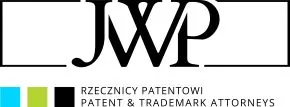- with readers working within the Property industries
Paying renewal fees on time is not enough to enjoy 10 years of effective protection for your trademark. Contrary to what one might think, filing for a trademark and registering it is not the end, but only the beginning of an entrepreneur's efforts in this respect. In order to make it smooth sailing, trademark owners must take proper care of their interests and ensure that they are comprehensively protected.
Expiration of a trademark means that the trademark becomes invalid, and its former owner loses the right to use it. The trademark which has been formally granted protection by the Polish Patent Office may be protected indefinitely, provided that every ten years, before the protection period expires, a renewal fee is paid for each registered class of goods and services. Unfortunately, however, the failure to pay the renewal fee on time is not the only possible reason for decisions to revoke a trademark being issued. Entrepreneurs often forget that after protection has been granted there may arise circumstances which do not allow for it to continue.
Demotion or promotion?
According to Article 1692 of the Polish Industrial Property Law (PIPL) "the right of protection for a trademark shall also lapse on loss by the trademark of distinctive features for the reason that in consequence of the owner's acting or negligence it has become, in the course of trade, a customary mark." It means that a trademark has "degenerated" and become a common symbol for a particular kind of goods, losing its original significance as a designation of a manufacturer or a company. One example of trademark degeneration is "Xerox" – originally a trademark of the company Xerox, later used to mean any copy made by a copying machine. In this case the trademark holder could not be very pleased with such a turn of events. The complete opposite is true for the "Google" trademark. Originally, it was used as a name of Google's Internet browser, but owing to the huge popularity of their product, it is now used colloquially as the verb "to google," i.e. to search the Internet for an answer to one's question or to fulfil the user's other needs. This kind of trademark modification is good for the company's marketing and a dream cherished by many entrepreneurs. However, it is important to remember that it entails a certain risk. If a trademark degenerates, other manufacturers may use it to describe their goods and services without infringing any copyright, with the exception of so-called trademarks with reputation. To avoid trademark degeneration and consequently its expiration, the trademark should be adequately protected and promoted in a thoughtful manner.
A trademark is an integral element of the business
A trademark is a asset of one's business, therefore the cessation of business activity by the trademark owner results in the expiration of the protection granted to such a registered trademark. Moreover, in certain jurisdictions, it is necessary to provide a proof that the trademark is being used, otherwise its protection may be revoked to the extent that the trademark is not used.
A trademark cannot be misleading
A trademark may also expire when, according to the aforementioned Article 169 of PIPL, it (...) is likely to mislead the public as to, in particular, the nature, quality, characteristic features or origin of the good. When exactly can a trademark be considered misleading? First of all, when it contains false or misleading markings denoting the source of goods or services, falsely suggests they are of good quality, while they fail to meet certain standards, or when it indicates that a product comes from a particular region or country, even though it doesn't. In practice, such cases may more often entail infringing the rights of third parties, i.e. other trademark holders and manufacturers of other goods.
Protective rights should be tailored to the needs of the business
The owner of the trademark may at any moment surrender their rights to it, in part or in full, by filing a relevant statement. To do this, the entrepreneur is not obliged to wait until the end of the 10-year protection period that has been already paid for. If the company has decided to change its marketing strategy, which requires promoting a new trademark, when it finds it difficult to cover all the related costs (especially when its trademark has been registered in multiple countries), or it is considering a change of its business profile, further maintenance of the trademark protection may be too costly. However, you should remember that if some of the goods or services offered are doing well on the market, it is worth maintaining the protection, and the decision to surrender your rights to all registered elements and classes of the trademark should not be taken too hastily.
In order to fully benefit from the registered trademark in their business portfolio, and to suitably safeguard it against expiration, an entrepreneur should regularly renew its registration, make sure to use it properly in their business activities, and promote it in an adequate manner. It is also crucial to take action towards exercising your rights when an infringement is suspected. To this effect, it is worth relying on trademark monitoring. It enables effective trademark protection in a particular region, and it will undoubtedly contribute to the success of your business on the market.
The content of this article is intended to provide a general guide to the subject matter. Specialist advice should be sought about your specific circumstances.


